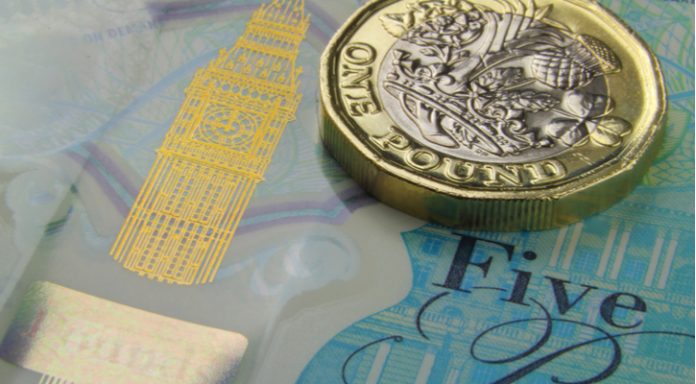- Pound (GBP) is rising on news of a UK-German treaty
- Deeper collaborations are expected in technology, business and culture
- Euro (EUR) falls after weaker German data this week
- German inflation figures are due tomorrow
The Pound Euro (GBP/EUR) exchange rate is rising for a fifth straight day. The pair rose +0.29% in the previous session, settling on Tuesday at €1.1850 and trading in a range between €1.1807 and €1.1862. At 18:00 UTC, GBP/EUR trades +0.08% at €1.1864.
The pound is pushing higher, lifted by news that Prime Minister Kier Starmer and German Chancellor Olaf Scholze are keen to reset UK-EU ties.
The two leaders met in Berlin today, where they agreed to work on an ambitious treaty covering many areas, from defense to trade, that would reset EU—UK ties.
Kier Starmer, the UK Prime Minister, took office just over a month ago and pledged to put boosting UK growth at the heart of his government efforts. He sees improved ties with the EU as a way of achieving this.
The new treaty with Germany would deepen collaborations in science, technology, business, and culture whilst increasing trade. They hope to try to sign the cooperation treaty early next year.
The move from Starmer comes after a speech from the Prime Minister earlier in the week where he warned the Autumn budget will likely be painful.
His comments paved the way for tax hikes in order to cover the £22 billion fiscal black hole that the chancellor of the exchequer, Rachel Reeves, claimed to have identified earlier in the month.
The euro is inching lower against the pound and against the US dollar after data this week has raised some concerns over the economic outlook for the region.
This week, plenty of data from Germany has been released, and most of it has been disappointing. German GDP contracted 0.1% quarter on quarter in Q2, and the German Ifo business climate was weaker than expected. German consumer confidence is also set to tumble in September.
Looking ahead German inflation data is due tomorrow and is expected to show that consumer prices cooled again in the eurozone’s largest economy to 2.1% from 2.3% in July. Cooling inflation and a deteriorating economic outlook could encourage the ECB to cut interest rates in the September meeting which is keeping pressure on the euro.





